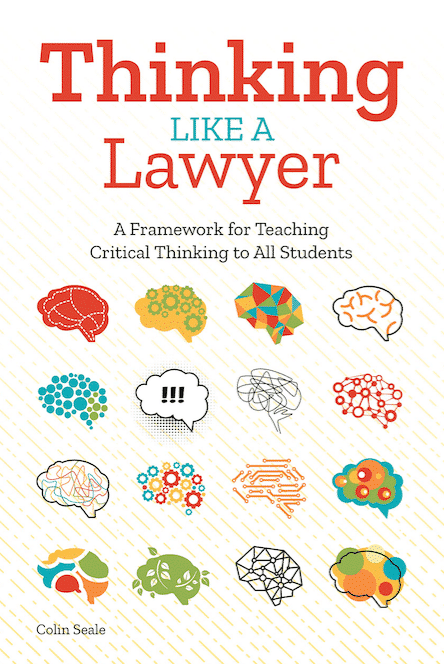Do you ever find yourself asking, “why doesn’t my child THINK?”
Since launching thinkLaw, I’ve gotten a lot of questions from parents curious about ways to encourage critical thinking in toddlers. Learning to think critically is a part of scientific, mathematical, historical, economic and philosophical thinking, all of which are necessary for the future development of our society. Children must know how to analyze and evaluate information that is provided, whether that information is through observation, experience or communication.
So how can we best support and teach our children to develop critical thinking skills, habits and mindsets? Here are the 5 ways we suggest:
1. Design Experiments with Your Toddler
Toddlers are addicted to asking “why,” so it’s not surprising that most parents end up spoon-feeding answers. But instead of answering “why do you put milk in the refrigerator?” with “because it will spoil and smell awful,” design a simple experiment where you pour milk into 2 cups, keeping one in the refrigerator and one on the kitchen counter. And check them in 2 hours, 4 hours, 6 hours so they smell and look at it to observe the differences between the two. You will never have time to do this for every single “why,” but even just picking one rabbit hole a day to go down will help your toddler develop his or her intellectual curiosity.
2. Answer Your Toddler’s Questions with Questions
I always thought the whole point of becoming a parent was to annoy your children by not answering anything you ever ask! But there is actually so much to be gained when a toddler asks how to do something, where something is, or why something happens and your response as a parent is another, pointed question. For example, respond to “this toy is broken, how do I fix it?” with questions like, “Hmmm…what if we did this (something that is not the way to fix it, but a helpful start to the trial and error process)? Do you think that would work? Why? What should we try next? This encourages your toddler to learn to ask the right questions.
3. Play the Prediction Game with Your Toddler
If you are reading a book or watching television, pause shows at key moments and ask, what do you think is going to happen next? Why? This encourages your toddler to share their develop their ability to make inferences and to make persuasive arguments. For example (spoiler alert for the 1 toddler parent who has not watched Trolls), when the trolls are having their huge party, you can encourage deep thinking just by asking your toddler questions like “what do you think will happen next?” “Does this party seem like a good idea? Why or why not.”
4. Make Your Toddler Think About Their Thinking
Metacognition, or thinking about your thinking, is another strategy for developing critical thinking in toddlers. When my daughter first learned what an ambulance was, she saw a police car and shouted out “ambulance, someone is hurt!” I could have just said, “no, that’s a police car, not an ambulance.” But it is so more impactful to dig into this misunderstanding with questions like, “why do you think this is an ambulance?” “How is this like an ambulance?” “How is it different?”
5. Encourage Creativity in Your Toddler
The best way to help your toddler “think outside the box” is to regularly engage in activities that push their creative thinking. Have your toddler read books to you based on the pictures only, read forwards and/or backwards.
Make up stories you can orally complete together (I do a lot of stories based on this model: “Once upon a time, there was a little ___ named ___. She had a friend named _____. She like to ____ with her friend. But one day, _________. They were scared but they remembered that _______….).
What they come up with may seem silly but possibilities that seem wild might serve as a springboard for them to make an original and powerful new connection.
While these are strategies listed for toddlers, these are strategies you can use for students of all ages. Please let me know what you think about these, and feel free to add more suggestions to this list. If you find these helpful, please share!
To learn how your school or organization can adopt thinkLaw’s standards-aligned program that helps educators teach critical thinking to all students, please click here to schedule a time to speak with someone on the thinkLaw team, call us now at (702) 318-7512 or join us on our next webinar; Thinking Like a Lawyer: Powerful Strategies to Teach Critical Thinking to All Students












Love this! So appreciate the serious focus on our youngest children – so much to there – there!